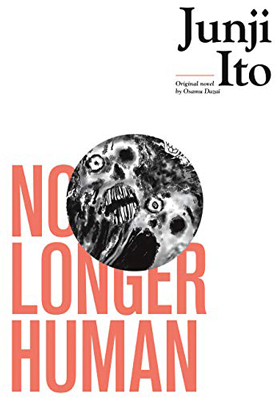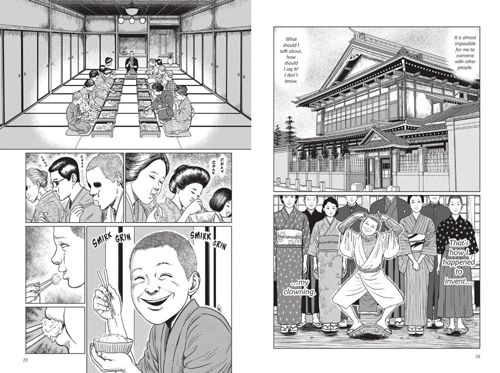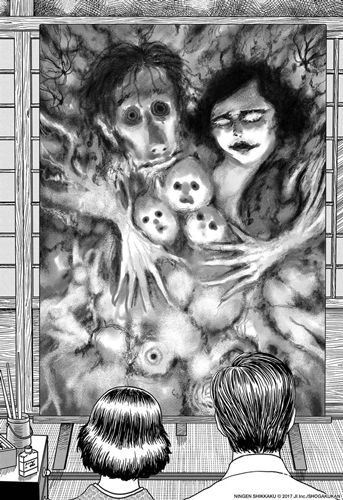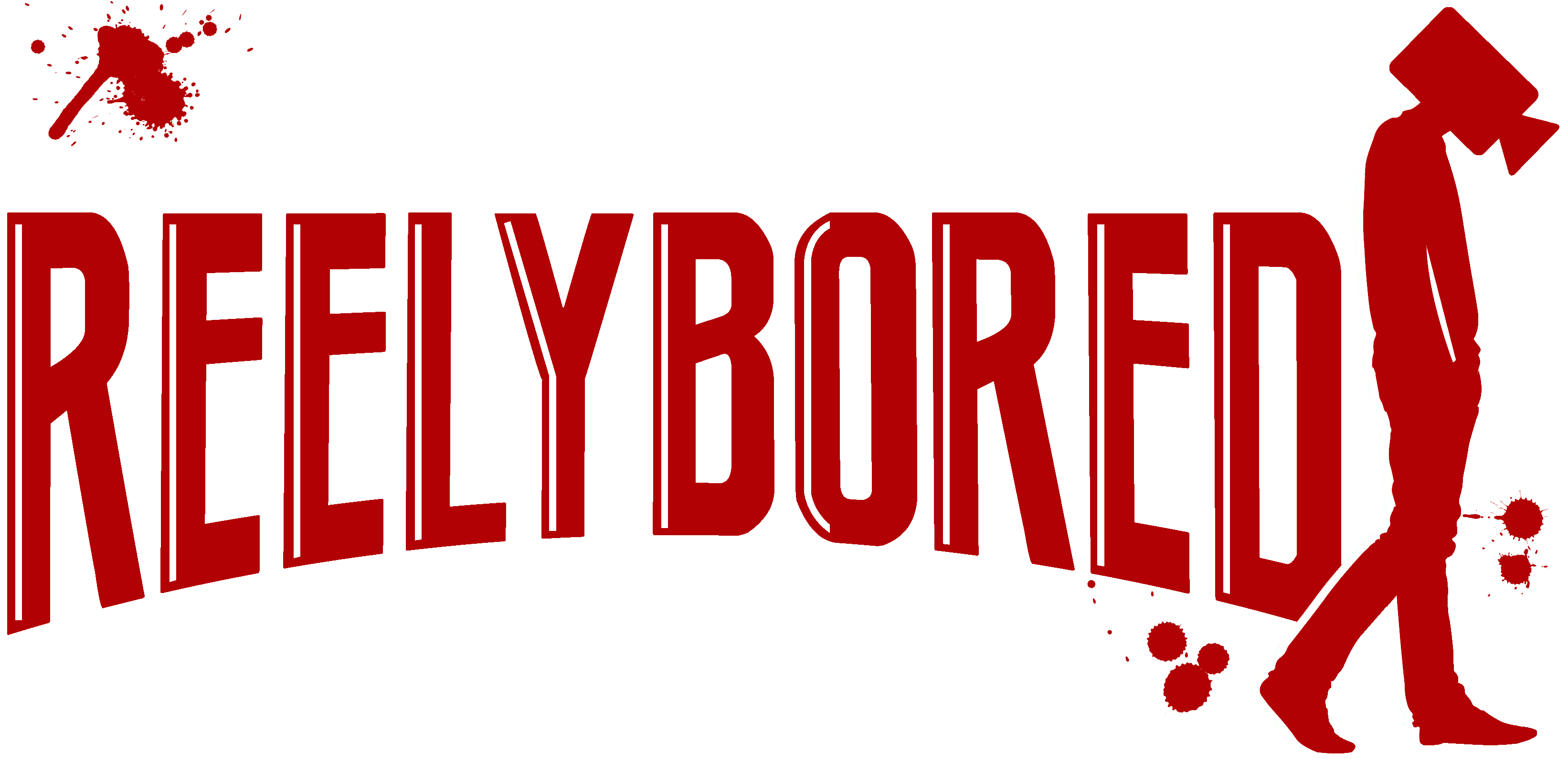
Mine has been a life of much shame. I can’t even guess myself what it must be to live the life of a human being.
Plagued by a maddening anxiety, the terrible disconnect between his own concept of happiness and the joy of the rest of the world, Yozo Oba plays the clown in his dissolute life, holding up a mask for those around him as he spirals ever downward, locked arm-in-arm with death.
Osamu Dazai’s immortal—and supposedly autobiographical—work of Japanese literature, is perfectly adapted here into a manga by Junji Ito. The imagery wrenches open the text of the novel one line at a time to sublimate Yozo’s mental landscape into something even more delicate and grotesque. This is the ultimate in art by Ito, proof that nothing can surpass the terror of the human psyche.
Graphic Novel Book Review: No Longer Human
Ever since I heard of the depraved writer, Osamu Dazai, I went down a minuscule rabbit hole after I learned that shortly after writing his last book, No Longer Human, he took his own life. What brought on such pestilence that rendered Dazi to end it all? According to articles and some YouTube videos I watched, No Longer Human is considered to be semi-autobiographical and a sort of suicide letter. I was intrigued to possibly gain some insight as to why he would take his life. For about a month, or two, I anticipated reading No Longer Human by Osamu Dazai. However, I opted instead for Junji Ito’s adaptation of Dazai’s supposed morbidly depressing 1948 novel because of his wonderful artwork. Why not counterbalance such depravity with beauty, I thought.
We are immediately engulfed with the despondent, Yozo Oba, both our protagonist and antagonist. With this character’s introduction, we immediately know what to expect in that both his actions and inner thoughts are, for lack of a better word, morbid and adverse. It is a theme that is prevalent throughout the entire narrative. if this is, indeed, a reflection of Dazai’s own life then that, in and of itself is utterly sad and depressing. The narrative of Yozo follows him as a young boy who gets his kicks making other people laugh for the sake of wanting to be liked and adores the attention and admiration. It isn’t until a fellow classmate calls him out on his antics that comes to realize that he is, indeed, a phony. Yozo’s every action, going forward in life, hinges on the words of his classmate which haunt and seem to define him.

Still, this is not to say that Yozo did not have fun because there was no shortage of women falling head over heels for him. No, he had no problems in that category as it seemed that there was a new woman in his life at every chapter with barely any effort made. This, however, was not far from the truth as Dazai was notorious for being a womanizer and had a history of being with sex workers, mistresses, and an array of lovers. In essence, Dazai was following the old adage of writing what you know. This is not to say that this is a good thing, at least not in this case, because the way women were portrayed in this body of work was as if they merely served a purpose to satisfy his needs, whether they be sexual, emotional, or otherwise. Once whatever purpose served was met, he discarded them, and on he went moping about life. Woe is me is what came across on many occasions and being that Dazai eventually, in reality, did indeed take his own life, then No Longer Human is a tragic look at the psyche of Dazai. It is clear that he battled demons and there was a serious case of mental disorder. I had a hard time getting into this narrative and what really kept me turning the pages was Junji Ito’s artwork which was able to exhibit the emotions of what Dazai may have experienced through his own eyes. This, of course, is impossible but his interpretation of Dazai’s words came across as spot-on. I can’t say that I can recommend No Longer Human as it really did not do much for me and came across as both a vanity and a very personal project that I did not think deemed necessary to share with the world. This concept further proved itself when Dazai included himself as a character in the narrative as an author and viewed Yozo as an outsider. What did this say? Was Dazai trying to separate his true self as someone who was not him and, rather, as some sort of sinister being? Or was he telling us, his readers, that this work is a self-reflection of his deeds and life of regret? No Longer Human would have, in my opinion, been better off within the confines of his estate as the life portrayed was tragic, sad, and depressing not only for Dazai but for the lives he ultimately affected.

